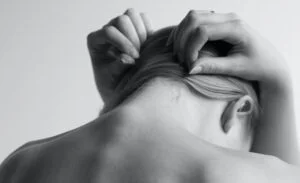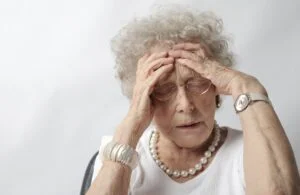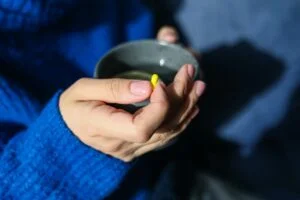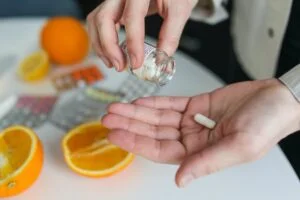Drug and Alcohol Rehab in Norway
Known for destroying lives worldwide, addiction continues to affect communities in Norway and target those who are most vulnerable.
Despite government schemes to diversify services and provide early interventions for young people- rates of Substance Use Disorder are on the rise.
According to The Norway Country Drug Report of 2019, there were 9,015 adults considered to be high-risk opioid users and 8,200 people who injected drugs (PWID) back in 2016.
Heroin has been linked with the country’s highest rates of drug use- pointing to an ever-growing need to protect those most at risk.
In a culture that intertwines drinking with socialization, rates of alcohol dependency have also remained high: particularly among males.
WHO stipulated in 2021 that 9% of men in Norway suffered from alcohol addiction, compared with 2.55% of women.
Despite this gender imbalance, it’s important to note that Substance Use Disorder can impact the lives of anyone in the community, regardless of age, gender or ethnicity.
You can read more about the disease of addiction here.
To get the help you need from a rehab clinic in Norway, call our expert team today on +44 330 333 6197
The rehab admissions process in Norway

Fortunately, addiction is a treatable disease- with many sufferers achieving long-term sobriety due to inpatient rehab care.
Here at Rehab Recovery, we can facilitate your enrolment in a drug & alcohol rehab in Norway to suit your unique needs. In addition, we’ve simplified the process of choosing a treatment provider by liaising with leading clinics across Norway.
For those struggling with illicit drug addiction, we’ll fast-track the admissions process and can secure you a bed in a specialized clinic within 48 hours.
After reaching out, our team of experts will ascertain whether residential rehab is the right treatment option for you, or if outpatient treatment is more appropriate. Then, upon agreement, we’ll begin the admissions process by conducting a 10-15 minute phone assessment.
This will start with a quick, non-invasive health assessment so that we can get an idea of your current wellbeing. Questions will focus on the nature of your addiction, genetic predispositions, and any physical or psychological symptoms.
Our specialists will use this information to inform your detox by deciding which prescription drugs you’re eligible for. Following the health exam, you’ll be asked to give your preferences for finding the ideal drug & alcohol rehab in Norway.
Our team will build a profile of your price range, ideal setting, clinic size, and goals for treatment. Lastly, we’ll start to build your personalized treatment program and recommend suitable rehab clinics in your local area.
Before completing the admissions process, you’ll have the opportunity to visit your short-listed clinics, allowing you to make an informed decision.
Begin the admissions process at a drug and alcohol rehab in Norway by calling our team today on +44 330 333 6197
Physical vs psychological addictions in Norway

Addiction is not considered a ‘choice’ or ‘moral failing’ on behalf of the addiction sufferer – so the focus of rehab is always on returning agency to the patient.
Whether an individual exhibits a mental addiction, physical addiction, or a combination of the two- it’s crucial to note their key differences.
For example, while cannabis dependencies are mainly psychological and absent of physical withdrawal, heroin addiction and alcohol addiction include both.
Learn more about the nature of addiction and how it can be treated in Norway by calling us today on +44 330 333 6197
Physical addictions

Physical addictions refer exclusively to substance-induced changes within the body.
Research has shown that over time, the body becomes so acclimatized to a substance that its cells can’t function normally without it.
This biological change causes two main categories of physical addiction: increased tolerance and withdrawal symptoms.
As tolerance builds in the body, individuals will consume more drugs or alcohol to achieve the same high- leading to an increased risk of overdose.
When these same individuals attempt to quit, they’ll likely experience painful withdrawal symptoms. These include but are not limited to nausea, muscle aches, chills, diarrhoea, and even seizures.
Think you might be suffering from a physical addiction? Get the help you need in Norway by calling us on +44 330 333 6197
Psychological addictions

When someone suffers from a psychological addiction, they’ll battle the overwhelming compulsion to use, emotional distress, and mental as opposed to physical cravings.
Though less common, an individual can have a purely psychological addiction, devoid of any physical symptoms or decline in bodily health.
Like physical dependencies, symptoms of psychological addictions will manifest in the withdrawal phase.
When attempting to self-detox, individuals may experience anxiety, depression, drastic mood swings, or psychotic episodes and hallucinations.
If you’re struggling to overcome a psychological addiction, discover how what a rehab clinic can do for you by calling us on +44 330 333 6197
The alcohol detox process at rehab in Norway

To achieve long-term recovery, the physical components of addiction need to be treated first. For victims of alcohol dependency, this journey begins in the same way as other drug addictions with a supervised alcohol detox.
While each detox process will differ depending on the individual, patients typically spend 5-10 days gradually reducing toxins in the body.
At a drug & alcohol rehab in Norway, patients suffering from alcohol addiction receive round-the-clock care during this process.
Being monitored by a team of medical professionals is crucial in preventing alcohol withdrawal symptoms including anxiety, seizures and delirium tremens.
After assessing your unique needs, you may be offered medication to eliminate any withdrawal discomfort.
This will often include the prescription drug chlordiazepoxide (Librium) to lessen anxiety and Acamprosate to help with cravings by affecting GABA levels.
GABA is a chemical in the brain that is thought to be partly responsible for inducing alcohol cravings.
Make sure that your alcohol detox is safe and effective with the help of alcohol rehab centres in Norway – call us today on +44 330 333 6197
Drug detox in Norway

Akin to alcohol addictions, the detox process opiates is crucial for implementing lasting recovery.
Due to the risks associated with drug withdrawal, it’s recommended that individuals seek the aid of an inpatient rehab clinic, where their safety is guaranteed.
Instead of going “cold-turkey”, the combination of treatments and therapies will gradually draw toxins out of the body to ensure the comfort and safety of each patient.
The time taken to complete this process varies depending on the substance being reduced.
For example, those with a cocaine addiction usually take around seven days to stabilize, whereas heroin detoxification can take a minimum of ten days.
While the drug detox process can seem overwhelming, you’ll have 24/7 access to a team of addiction specialists who can prescribe medication if needed.
For heroin withdrawal, low-dose opioids such as Suboxone or Methadone are used as substitute drugs. As Cocaine withdrawal is characterized by anxiety and restlessness, drugs in the beta-blocker family are used to relieve stress.
Start your recovery journey the right way at a drug rehab clinic in Norway by calling us on +44 330 333 6197
Alcohol rehab in Norway

The legality of alcohol in Norway often leads to the assumption that those addicted “aren’t bad enough” to warrant rehab.
The misconception that rehab is reserved only for hard drug users is incorrect and can stop those needing help from reaching out.
In fact, individuals suffering from alcoholism are often recommended for a short-term residency at a drug & alcohol rehab in Norway.
Professionally supported drug and alcohol rehab is one of the best ways to recover from addiction.
Here, a professional addiction team can address both the physical and psychological impacts of alcohol misuse.
Following an assisted detox of around seven days, inpatients at an alcohol rehab will begin working through their personalized treatment plans.
Though these will differ depending on the individual, programs for alcohol addiction often include Cognitive Behavioural Therapy alongside Family Therapy.
In CBT sessions, patients learn to identify situations involving places, people, or objects that can tempt them to consume alcohol.
They’ll work alongside a therapist case-worker to develop relapse-prevention tools, helping them to manage triggering situations in the outside world.
Family Behavioral Therapy is often a large part of alcohol rehab. It allows patients and their loved ones to improve communication and overcome the emotional strain that alcohol addiction puts on these relationships.
Sessions allow for the formation of personal goals and how to manage exposure to alcohol upon your return home.
Overcome your alcohol addiction at a clinic in Norway by calling us today on +44 330 333 6197
Drug rehab in Norway

Conditions such as cocaine use disorder and opiate addictions are progressive and cause their victims to degenerate over time.
As such, it’s vital for those suffering to seek the help of a drug & alcohol rehab in Norway before lasting physical and psychological damage is inflicted.
After completing a medicated detox, treatment programs in drug rehab clinics follow a routine of psychotherapy and relapse prevention classes.
Individual therapy sessions are carried out on a one-to-one basis with an experienced therapist: often centring around CBT methods and >Motivational Interviewing.
Both schools of thought allow patients to work through the intense emotions that arise after detoxing from illicit drugs.
Set within comfortable, modern surroundings, you’ll develop key tools for managing cravings and any emerging feelings of anxiety and/or depression.
Rehabs specializing in cocaine and heroin addictions often incorporate group therapy. These workshops are therapist-led and held in small groups of between 5-10 peers.
When recovering from intense opiate or stimulant addictions, it’s vital to communicate with those going through the same struggles.
The camaraderie resulting from group therapy can last beyond rehab and inform fellowship programs moving forward.
Please call our 24-hour helpline today on +44 330 333 6197
Co-occurring disorders at rehab in Norway

Also known as Dual Diagnosis, co-occurring disorders refer to any mental health conditions that exist alongside addiction.
Government studies in the UK have stipulated that 59% of adults starting treatment for Substance Use Disorder also have a mental health need.
Oftentimes, individuals with alcoholism have an underlying anxiety disorder and may have started drinking as a crutch to lean on.
However, though a substance may temporarily alleviate anxiety or depression- regular use causes symptoms to worsen over time.
Moreover, substance-induced chemical changes in the brain make it far more likely that someone will develop a mental health disorder.
These can include drug-induced psychosis, depression, panic disorders, or schizophrenia.
When treating co-occurring disorders, a specialist must ascertain whether one condition has caused the other or if they’re mutually exclusive.
At a drug & alcohol rehab in Norway, you’ll receive a full psychiatric assessment conducted by a healthcare provider.
Following their evaluation, you’ll receive targeted treatments in the form of psychotherapy and medication- all tailored to suit your specific needs.
To learn how a drug and alcohol rehab in Norway will work to support your mental health needs, call us on +44 330 333 6197
How much time will I spend at rehab in Norway?

This is a common question posed to the Rehab Recovery team, and understandably so. Opting for a drug & alcohol rehab in Norway is a life-changing step, and terms such as “residential treatment” can seem misleadingly permanent.
However, as there’s no one-size-fits-all for addiction, it isn’t easy to give a definitive answer.
You and your case worker will make a decision by taking factors such as addiction severity, treatment type, and other details of your situation into account.
Studies and research can estimate the optimal amount of time to spend in rehab- depending on the substance.
For cocaine rehab, individuals spend anywhere between 2 weeks to 60 days in an inpatient clinic.
For heroin use disorders, an extended time frame is recommended to avoid future relapse.
This includes a 14-21 day medicated detox, followed by a potential 90 days in residential therapy.
It’s important to note that these figures are a guideline and that treatment times will be tailored to your situation.
To discover how long your stay at an alcohol and drug rehab in Norway is likely to last, call us today on +44 330 333 6197
Cocaine rehab in Norway

Cocaine’s ability to cause severe psychological addictions means that inpatient rehab is the optimal place to recover.
At your chosen drug & alcohol rehab in Norway, you’ll work through a selection of psychotherapy tailored to cocaine use disorders.
You’ll have access to on-site medical support, alternative therapies such as holistic workshops, and nutritious meals in your downtime outside of therapy.
Most importantly, you’ll be in a safe environment free from triggering situations and exposure to cocaine or crack cocaine.
The rehabilitation process for stimulants can last anywhere from a few weeks to a few months– depending on the individual and their unique circumstances.
In rehab for cocaine, successful treatment often consists of combining both pharmacological and psychological support.
You will not need to undergo cocaine detox; instead, you will begin moving through a personalized treatment plan designed to tackle the root cause of your cocaine addiction.
In one-to-one CBT sessions with your assigned therapist, you’ll build the skills needed for self-understanding and self-evaluation.
Crucial tools include recognizing the situations that trigger your cocaine use and learning how to modify this behaviour moving forward.
If your addiction is underpinned by trauma or past life events, Dialectical Behavioural Therapy is often recommended to work through and heal from lingering negative emotions.
Overcome your cocaine addiction with the help of a drug rehab centre in Norway – call us today on +44 330 333 6197
Heroin rehab in Norway

Known for inducing chronic addictions, If you’re struggling with opiate use disorder, it’s vital to seek the help of an inpatient drug & alcohol rehab in Norway.
Rehab residences are often longer when you suffer from heroin addiction because you must tackle both the physical and psychological dependences.
By completing a 30- 120-day residency, patients are discharged from rehab armed with the tools needed to avoid relapse and re-integrate into society.
Once you’ve concluded your medicated heroin detox, your supportive caseworker will guide you through the contents of your personalized care plan.
Then, you’ll commence a routine of psychotherapy workshops incorporating various styles. For example, in the field of opiate addiction recovery, behavioural interventions such as CBT and DBT have proved successful.
While DBT addresses any emotional trauma behind heroin use, CBT works to change faulty thinking patterns directly.
Parallelled with psychotherapy, contingency management (CM) is used by heroin rehab to consolidate motivation and treatment retention among patients.
CM utilizes an incentive-based system: rewarding patients for providing clean urine samples or achieving abstinence milestones.
Experts have agreed that abstinence is far more effective than harm reduction or moderation management – as a result, that’s what rehabs focus on.
Reward examples include vouchers or tokens that the patients can exchange for specific items conducive to recovery. These include special meals, classes, or rewards to be claimed post-rehab.
Overcome your heroin addiction with the help of a drug rehab centre in Norway – call us today on +44 330 333 6197
Cannabis rehab in Norway

Cannabis is one of the most highly abused drugs throughout the world.
Although cannabis is highly addictive mentally and can be extremely hard to quit, cannabis is not physically addictive.
This means that upon admission to rehab in Norway, you will not need to undergo a cannabis detox.
Instead, cannabis addiction is mostly tackled through various therapies designed to break this psychological addiction and any addictive habits.
Overcome your cannabis addiction with the help of a drug rehab centre in Norway – call us today on +44 330 333 6197
Types of therapy at rehab in Norway

Once you’ve enrolled in a drug & alcohol rehab in Norway, you’ll undergo a selection of psychotherapy befitting your history of substance use and current situation.
While therapy sessions are personalized to suit each patient, similar styles are used across the board.
Cognitive Behavioral Therapy (CBT)

CBT is grounded in the theory that maladaptive cognitive patterns contribute to forming substance addictions.
As such, sessions teach patients to connect their thoughts, feelings, and actions so that negative patterns of behaviour can be re-wired.
By tackling an addiction from its root cause, CBT has proved to be a powerful relapse prevention strategy for a multitude of substance use disorders.
Dialectical Behavioral Therapy (DBT)

Based on the principles of CBT, DBT focuses acutely on emotional management. For many people, the process of recovering from their addiction can bring up intense negative feelings.
They may be suffering from past trauma that underpinned their substance use or simply adjusting to life without drugs or alcohol. In DBT sessions, you’ll learn to understand and accept your difficult feelings whilst learning skills to manage them.
Contingency Management (CM)

CM is a motivational system whereby patients are given tangible rewards to reinforce positive behaviour.
Physical, low-value rewards are presented for continued sobriety, milestone achievements, and ongoing participation in therapy such as 12-step work.
As addiction recovery is an often vague, intimidating process- research has shown the value of rewards in keeping motivation and morale high.
Examples include vouchers that you can trade, small-cash prizes, and random drawings, lottery-style entries.
Motivational Interviewing (MI)

As the name suggests, MI is a style of addiction counselling aiming to motivate positive change in the individual. Through a series of one-to-one sessions with a trained therapist, patients can build personal goals and reflect on their recovery journey.
Via collaborative discussion, those starting recoveries are encouraged to plan strategies for achieving a healthy life, both in and outside of rehab.
MI has seen fantastic success when used alongside methods such as CBT. By combining these two techniques, the motivation to participate in psychotherapy is increased- so that the root cause of addiction can be treated.
Holistic Therapy
Holistic therapy aims to support the general well-being of the patient rather than tackling any specific addiction-related issues.
These often take the form of relaxing activities, designed to provide both a sense of inner calm and fulfilment.
The specific techniques used will vary from clinic to clinic, but often includes:
To experience any and all of these superb therapies through alcohol and drug addiction treatment services in Norway, talk to our admissions team on +44 330 333 6197
Post-rehab support & fellowship groups in Norway

After being discharged from a drug & alcohol rehab in Norway, our clients receive ongoing support as they transition back to normality.
Our aftercare programs here at Rehab Recovery ensure continuous treatment for 12 months, free of charge.
Long-term support programs vastly increase the chances of lifelong recovery by giving patients access to local fellowship groups.
Typically, these are categorized into Alcoholics Anonymous (AA) and Narcotics Anonymous (NA). Both groups consist of those in recovery meeting regularly to work through their unique 12-step programs.
The 12-step approach is a proven method for battling addiction, as it provides a structure for recovery.
Over many months or even years, individuals will work through a set of principles that are conducive to healing, such as integrity, forgiveness, hope, power, and so on.
By attending a recovery group as part of our aftercare program, you’ll join a community focused on lifelong sobriety and solidarity.
Additionally, regular evaluations will be carried out by an addiction specialist at your local rehab clinic.
During these outpatient check-ups, you’ll be offered a safe, judgment-free space in which to discuss your progress.
Make sure you get the right support after your stay at a rehab in Norway by calling us on +44 330 333 6197
Getting Help Today

To learn more about anything read today, or to ask any questions relating to addiction, please should feel free to contact Rehab Recovery’s 24/7 addiction support hotline on +44 330 333 6197
With the right help behind you, any addiction can be successfully overcome.
We also offer connections to rehab clinics throughout Norway and the rest of Europe, including both private rehab and public addiction treatment services.


